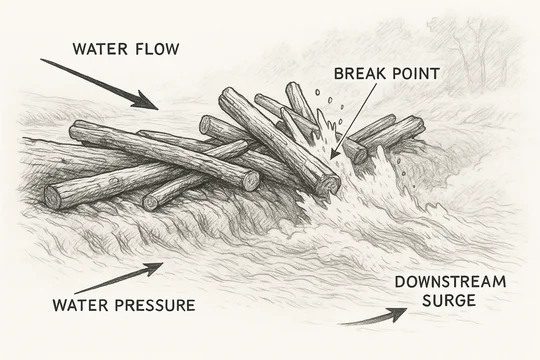
When the Court instituted its vacant judgeship procedures following Judge Stark's elevation to the Federal Circuit, the implementing order included procedures to keep cases moving if the parties do not consent to a magistrate judge to hear the case.
For example, the order directs parties to hold a Rule 26(f) conference within seven days of notifying the Court that the parties would not consent to a magistrate judge:
The parties shall cooperate in good faith to move the case forward. To that end, within seven days of filing the notice that the parties would not consent to a Magistrate Judge, the parties shall hold a Rule 26(f) conference and commence discovery.
The order likewise indicates that filing a motion to dismiss will not delay the case:
The filing of a motion shall not be grounds to prevent the case, including discovery, from progressing.
Generally, attorneys seem to have interpreted this in line with Judge Stark's former procedures, that filing a motion to dismiss can essentially never be a basis for a motion to stay.
A decision by Judge Fallon today, however, calls that assumption into question. The Court denied a motion to stay pending a motion to dismiss but, interestingly, entertained the motion and performed a full analysis despite noting the text of the standing order:
Analysis. Based on the court's consideration of the totality of the circumstances in this case, Ipsen's motion to stay is DENIED. The court's exercise of its discretion over case management is guided by Standing Order No. 2022-VAC-I, dated March 9, 2022 ("Standing Order"), which governs cases such as this one that are assigned to the VAC docket during the current judicial vacancy. The Standing Order specifies that "[t]he filing of a motion shall not be grounds to prevent the case, including discovery, from progressing" until the case is assigned to an Article III Judge. Standing Order at1T 5(f). Ipsen's proposal to stay discovery until resolution of the pending motion to dismiss would require a deviation from the Standing Order. In the context of the overarching guidance provided by the Standing Order, the court turns to an analysis of the three stay factors.
[Nine paragraphs of analysis of the stay factors]
On balance, the totality of the circumstances weighs against the entry of a stay of discovery in this case. A stay of discovery would contravene the case management directives of the Standing Order and is likely to prejudice Cipla.
Cipla USA, Inc. v. Ipsen Biopharmaceuticals, Inc., C.A. No. 22-552-VAC-SRF (D. Del. Aug. 5, 2022).
The fact that the Court went through the stay factors, despite the standing order, suggests that perhaps there may be room in the right VAC case for a defendant to achieve a stay pending a motion to dismiss (something that nearly every defendant tends to want). Or, maybe the Court was just covering its bases and providing a second reason to deny a stay, beyond the standing order.
Wiggle Room on Rule 26(f) Conferences as Well?
Earlier in the same case, the defendant sent a letter to the Court asking for relief from the requirement to participate in a Rule 26(f) conference—opening the floodgates to discovery—until the Court had decided its motion to stay. The defendant also argued that the "core issue" in the case—having to do with "complicated" healthcare coding decisions—was under review by the Centers for Medicare & Medicaid Services (CMS). D.I. 29 at 1.
The Court granted that request, and permitted the parties to delay their Rule 26(f) conference until August 8, 2022 (three days after the date it ultimately decided the stay motion):
ORAL ORDER re D.I. 29 Letter; D.I. 30 Letter: The Court having considered the parties' discovery dispute letter submissions (D.I. 29; D.I. 30), IT IS HEREBY ORDERED that Defendant's motion to postpone the Rule 26(f) conference is GRANTED-IN-PART, and the parties shall hold a Rule 26(f) conference on or before August 8, 2022 [33 days from the order]. In the interim, the Court reserves consideration of the Motion to Stay Discovery (D.I. 18), which is fully briefed. In the event of any action by the Centers for Medicare and Medicaid Services ("CMS") on the coding issue relevant to the case, the parties shall provide a joint letter updating the Court on such action within a week of its issuance.
It appears likely that the Rule 26(f) delay had more to do with the forthcoming CMS decision than it did the motions to dismiss or stay, but it's still interesting that the Court was willing to permit a delay.
Of course, this may all be moot soon, once Judge Williams takes his seat on the Court!
If you enjoyed this post, consider subscribing to receive free e-mail updates about new posts.




